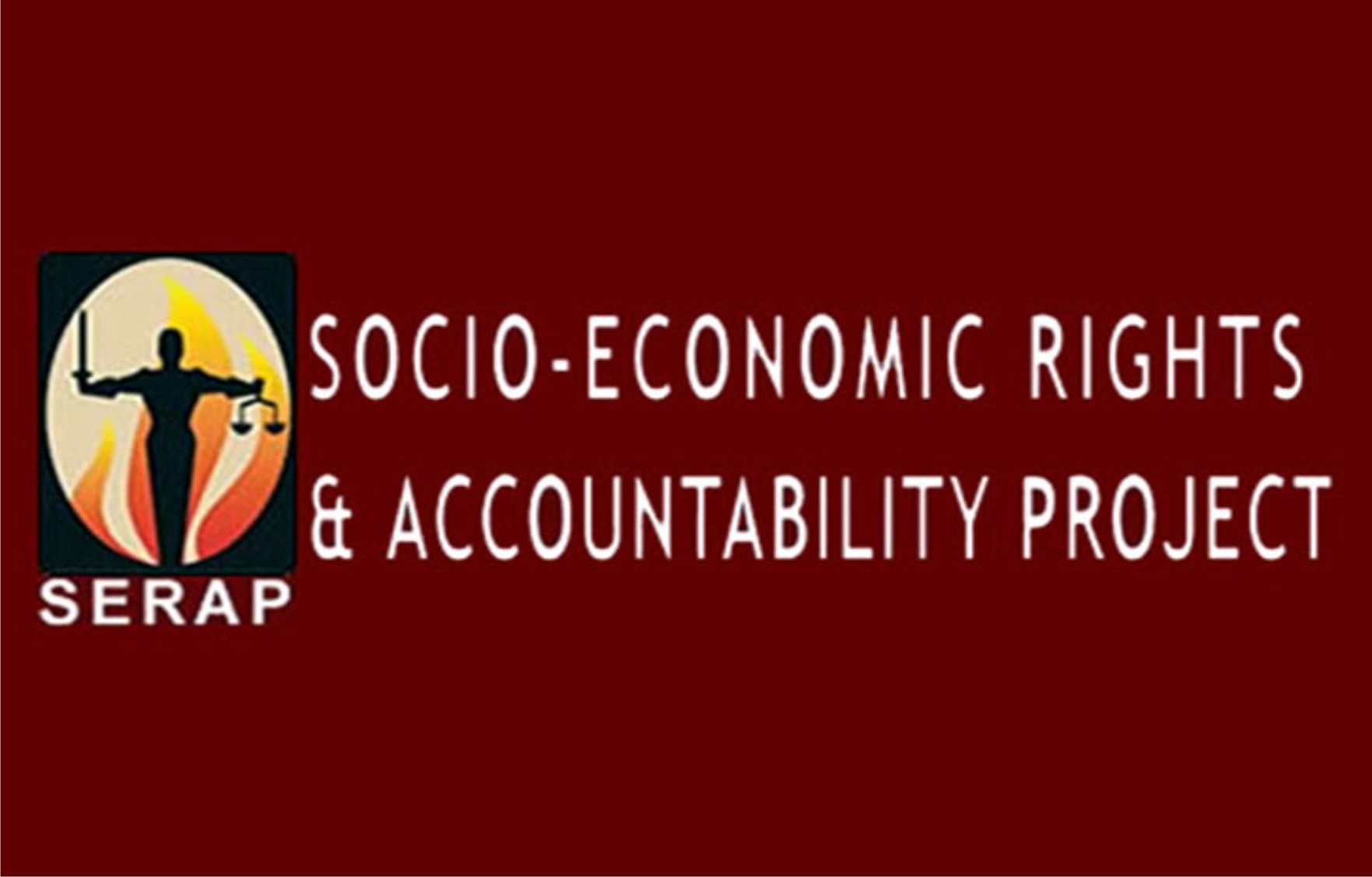News
NERC Denies Increase In Electricity Tariff As Consumers Kick
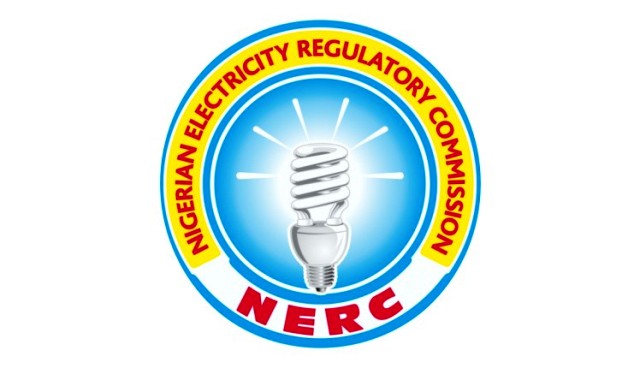
The Nigerian Electricity Regulatory Commission (NERC) says no tariff increase has been approved by the commission yet.
Mr Usman Arabi, General Manager, Public Affairs (NERC) made the clarification in a statement issued on the agency’s website, obtained bynewsmen in Lagos yesterday.
Arabi said:” The attention of the NERC has been drawn to the publication in several electronic and print media that end-user electricity tariffs have been increased following the approval of the minor review (2016 – 2018) of the 2015 Multi-Year Tariff Order on Aug. 21, 2019.
“We wish to provide guidance that the minor review implemented by the commission was a retrospective adjustment of the tariff regime released in 2015.
“This is to account for changes in macro-economic indices for the years 2016, 2017 and 2018 thus providing certainty about revenue shortfall that may have arisen due to the differential between tariffs approved by the regulator and actual end-user tariffs.
“The commission, therefore, wish to notify the general public that no tariff increase has been approved by the Commission vide the order.”
He said, however NERC, in the discharge of its statutory responsibilities enshrined under the Electric Power Sector Reform Act, would continue to undertake periodic reviews of electricity tariffs in accordance with the prevailing tariff methodology.
According to him, in all instances of such reviews and rule making, the commission will widely consult with stakeholders and final decision will take due regard of all contributions.
However, electricity consumer groups in the country have kicked against increasing tariff for end-user customers.
The groups, Energy Consumer Rights and Responsibilities Initiative and the All Electricity Consumer Protection Forum told newsmen in Lagos that increment in electricity tariff was unjustified based on present realities.
Mr Sural Fadairo, National President, Energy Consumer Rights and Responsibilities Initiative, noted that increasing the cost of electricity was not the panacea to Nigeria’s energy crisis.
“If they want to increase tariff because the Distribution Companies are under remitting due to debts by consumers, that will not solve the problem.
“If people are refusing to pay now because they are disputing their bills will they now pay if it is further increased? “What they need to do is to meter all electricity customers, so that we can end the issue of estimated billing.
“So, from the consumer point of view, we are totally against any increment because power generation and supply has not improved significantly in the country, “he said. Also, Mr Adeola Samuel-Ilori, National Coordinator, All Electricity Consumers Protection Forum, said the increase was totally uncalled for in all ramifications.
He said: “The basis for such increase at this time can’t be justified in that consumers have not been metered and they still purchase transformers and other line materials by themselves with attendant extortion via estimated billings. “ All these are not taken into consideration and extensively dealt with before contemplating tariff increase”.
Meanwhile, the Human Rights Writers Association of Nigeria, HURIWA, has carpeted the President Muhammadu Buhari-led Federal government over what it termed “astronomical rise” in the tariffs payable for electricity supply across the country.
HURIWA, a frontline rights advocacy claimed that the Buhari-led government was working “day and night” to unleash devastating economic strangulation through unsustainable reviewed electricity power tariffs on Nigerians most of whom are unemployed, hungry, sick and poor.
In a statement signed by its National Coordinator, Comrade Emmanuel Onwubiko and the National Media Affairs Director, Miss Zainab Yusuf, the rights group warned that the multiplier effect would be felt immediately due to spike in the costs of living.
The group said the focus of the Federal government in the beginning phase of the year should not be to impose grave hardship on the populace just coming out of the seasonal festivity of Christmas and New Year but any good government should be more focused on how quality education can be delivered to millions of the children of Nigerian suffering families that would be returning to schools in the next few days.
HURIWA said: “The Federal government should be focused in this New Year on how to improve health care and on how to curb the internal corruption that has destroyed the so called schools feeding programme instead of the Federal government of President Muhammadu Buhari working day and night to unleash devastating economic strangulation through unsustainable reviewed electricity power tariffs on millions of Nigerians most of whom are unemployed, hungry, sick and poor.
“President Muhammadu Buhari-led administration should be focused on restoring security of lives and property which is the primary duty of government and for which it has failed to discharge instead of rushing to introduce the wicked policy of Electricity power hike in January of a fresh DECADE.”
HURIWA recalled that the 11 electricity distribution companies (DisCos) have the mandate of the Nigerian Electricity Regulatory Commission (NERC) to effect the tariff increase from April just as these are as follows: Abuja Electricity Distribution Company, Benin Electricity Distribution Company, Enugu Electricity Distribution Company, Eko Electricity Distribution Company, Ibadan Electricity Distribution Company, Ikeja Electricity Distribution Company, Jos Electricity Distribution Company, Kaduna Electricity Distribution Company, Kano Electricity Distribution Company, Port Harcourt Electricity Distribution Company and Yola Electricity Distribution Company.
HURIWA specifically gathered that consequent upon the NERC directive, Abuja Electricity Distribution Company (AEDC) residential customers R3 will now pay N47.09 per unit as against the current N27.20, while Ikeja Electricity Distribution Company (IKEDC) customers in R3 category will pay N36.92 per unit instead of N26.50. Commercial customers C3 category will start paying N38.14 per unit instead of N24.63 and industrial customers of the IKEDC D3 category who are currently paying N25.82 per unit will henceforth pay N35.85 per unit.
HURIWA recalled that by the hike, the Enugu Electricity Distribution Company residential (R3) customers who currently pay N27.11 per unit will start paying N48.12 per unit just as the National Electricitu Regulatory Commission said the order was pursuant to Section 32 and 76 of the Electric Power Sector Reform Act aimed at providing a cost reflective tariffs that ensures prices charged by licensees are fair to consumers.
However, disagreeing with the explanation offered by the National Electricity Regulatory Commission for the current hike, HURIWA said that the “decision by the Electricity regulator to capitulate to the Machiavellian type selfish hike demand by the private operators of the weak, incompetent and inefficient electricity power supply subsector was against public interest and therefore will endanger public good and should be voided or resisted if government fails to listen to the voices of the people.”
HURIWA reminded the president that the voices of the people is the voice of God and if he wants to get the pulse and the heartbeats of the real people, then he the President should disguise himself as a commoner and drive to one of the rural markets in any part of the Federation so he can dissect properly the monumental dimension of mass poverty afflicting millions of Nigerians.
“HURIWA believes that the import of any public policy must be grounded on the utilitarian satisfaction of the greatest percentage of the population of the good people of Nigeria. Any public policy churned out specifically to enrich some privileged elitist class to the detriment of millions of the good people of Nigeria hasn’t met the constitutional threshold because of the centrality of the need for all government’s actions, policies and projects to be people centred and to benefit public good. The astronomical hike in the purchasing prices of the virtually non available and the erratic electricity power to less than 40% of the Nigerian population is directly offensive to the overall public good. In section 14 of the Nigerian Constitution the Federal Republic of Nigeria is legally created to be patterned as a State based on the Principles of democracy and Social Justice. Subsection 2(a) of section 14 provides that ‘Sovereignty belongs to the people of Nigeria from whom government through this constitution derives all its powers and authority. Just as subsection 2(b) of section 14 states that ‘the security and Welfare Of The People Shall Be The Primary Purpose Of Government.
“HURIWA believes that this is the most reckless policy to be imposed wickedly on the Nigerian people who are currently going through some of the most primitive and painful economic adversity in about 40 years. For a federal government to introduce such a callous tariff hike in the beginning of a new year either shows the government officials as Shylock Machiavellian and mean hearted selfish politicians who are insensitive and irresponsible to such an extent that the only policy they have brought UP to wish Nigerians a happy New year is to impose a strange but strangulating electricity tariffs without first and foremost ensuring that the distribution companies in the power electricity sector who got licences to distribute ELECTRICITY carry out their businesses in compliance with best global practices. The distribution companies lack transparency and acountability just as they are wayward in terms of corporate social responsibility to the people of Nigeria.
“These DISCOS are known to have been lavishly gifted with billions of Naira of Public fund by the Central Bank of Nigeria to improve their services but in the last five years it is evident that even the few Nigerian families who enjoy intermittent electricity power supplies are victims of price extortion through irregular billing methods without proper metering standards. Most electricity customers still don’t have meters to be able to accurately reconcile their consumption. Why is the Federal government through the National Electricity Regulatory Commission not concerned about decisively tackling the challenges associated with metering by the DISCOS rather than being so unnecessarily fixated with over exposing the marginalised electricity power consumers to untold hardships and further impoverishment in the hands of the profiteers masquerading about as licenced Distributors of Electricity power to NIGERIANS? Also why the hurry to increase the tariffs for services that are poor and inefficient? The Federal government must be compelled to reverse this anti people policy that will only increase mass poverty and will not in any away address the disturbing phenomenon of mass unemployment that became worst under the current Federal administration since the last 5 years?. Nigeria had only a year ago become the World’s capital of poverty with over 90 million people being absolutely poor. So how will they generate the money to pay these extremely hifh costs of electricity power supply which is so few and far between.”
News
May Day: Labour Seeks Inclusiveness In Policy-making
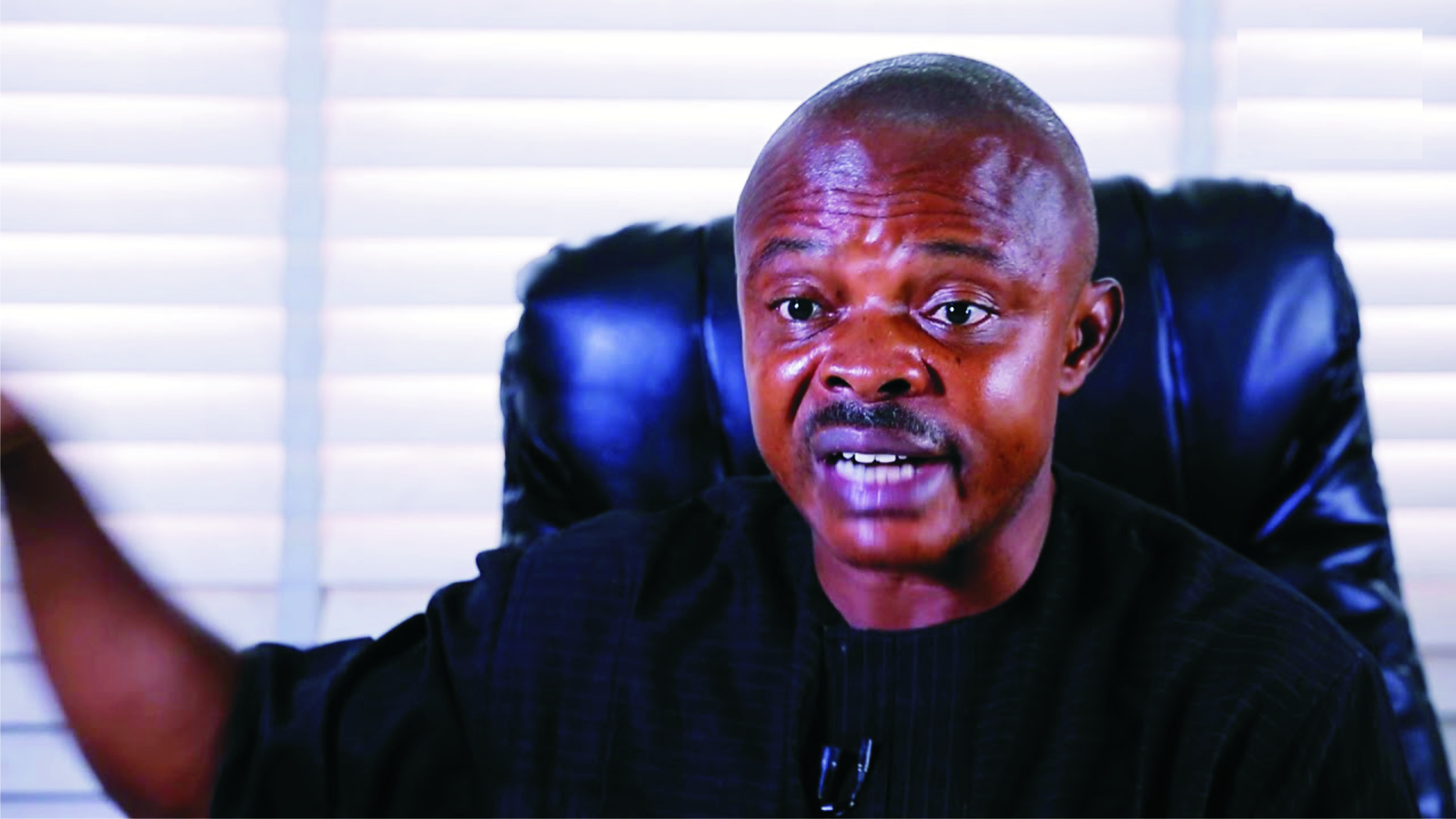
The Organised Labour yesterday, called on the Federal Government to ensure inclusiveness in policy making and guide against erosion of rights, such as free speech and association.
The President, Nigeria Labour Congress (NLC), Mr Joe Ajaero made the call at the 2025 Workers’ Day celebration held at the Eagle’s Square, Abuja.
The Tide source reports Ajaero and the President, Trade Union Congress, Mr Festus Osifo delivered a joint statement on behalf of the organised labour at the event.
Ajaero described May Day as, not only a moment to honour workers’ sacrifices, but also a platform to demand justice and accountability from those in public office.
He frowned at the alleged suppression of protests, and the erosion of rights of workers by some agents
According to him, workers have a duty to resist economic injustice, insecurity, and policies that undermine their dignity.
Speaking on the theme of the day, the NLC President underscored the need for Nigerian workers to reclaim the civic space and resist policies that contribute to worsening economic conditions.
“Our theme this year – “Reclaiming the Civic Space in the midst of Economic Hardship – reflects the urgent need for citizens to protect democracy and push back against repression.
“The civic space, where Nigerians express their concerns and challenge injustices is shrinking.
“If we fail to reclaim this space, the foundation of our democracy risks collapse,” he said
Ajaero, therefore, urged workers to unite and resist division, fear, and despair.
He also urged them to mobilise and organise for change, declaring that the right to demand better conditions is non-negotiable.
“Without workers, there is no society; without labour, there is no development. We must take our place in the fight for economic justice and democratic governance.”
Speaking in the same veins, Osifo said workers are the backbone of the nation—the educators, healthcare providers, builders, farmers, and innovators who sustain its economy -.
He stressed the need for the labour to reclaim the civic space even in the midst of economic hardship.
News
2025 UTME: JAMB Disowns Site Requesting Payment From Candidates

The Joint Admissions and Matriculation Board (JAMB) has disassociated itself from a fraudulent site requesting payments from candidates who missed the ongoing 2025 Unified Tertiary Matriculation Examination (UTME).
The board said that the site, “Copyrightwriter Personal J Rescheduling Flw” and account number 8520641017 at Sterling Bank, associated with it, are scam.
The disclaimer is contained in a statement made available to newsmen in Abuja on Thursday by the Board’s Public Communication Advisor, Dr Fabian Benjamin.
Benjamin said the account is being exploited to defraud unsuspecting candidates who missed their UTME.
“We issue this urgent notice to inform the public about this nefarious scheme targeting candidates who were unable to participate in the UTME.
“Some unscrupulous individuals are deceitfully soliciting payments of N15,700 under the false pretence of offering rescheduling services for the examination.
“Let us be unequivocal: this, it is a blatant scam, and we are confident that the public will not fall prey to such cheap and regressive tactics.
” The individuals behind this scam have no affiliation with JAMB or any legitimate government agency.
“The account details provided in these communications are entirely fictitious and bear no connection to any official processes; they exist solely for the purpose of perpetrating fraud,” he said.
Benjamin called on Sterling bank to take immediate and decisive action against this criminal activity.
According to him, JAMB has reported the matter to the relevant security agencies and actively pursuing those responsible for this deceitful act.
He further said that “JAMB does not reschedule examinations for candidates who miss their scheduled tests due to reasons unrelated to the Board’s actions”.
He, however, said that the Board is conducting a thorough investigation for candidates whose biometrics failed during verification and were thus unable to sit for the examination.
He said those without discrepancies would be invited to retake the examination at no cost , stressing that “no cost is required”
“It is imperative to understand that JAMB does not charge any fees for examinations after a candidate has completed their registration.
“We strongly urge all candidates to remain vigilant and not to succumb to these fraudulent schemes.
“Protect yourselves and report any suspicious activity immediately,” he explained.
News
NDDC Seeks UN’s Support To Accelerate Niger Delta Development
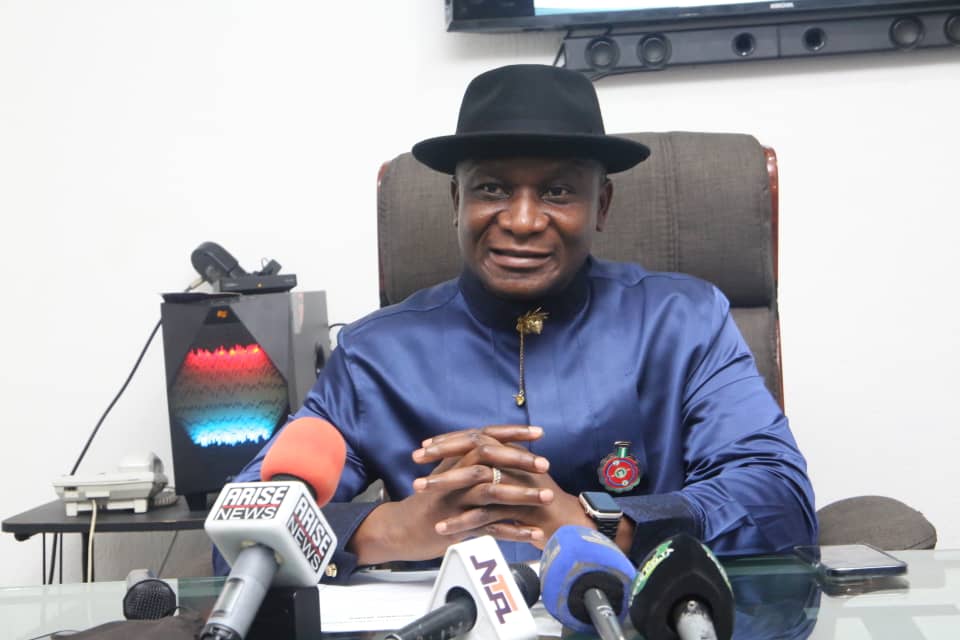
The Niger Delta Development Commission (NDDC) has expressed its willingness to partner with the United Nations (UN) to accelerate the development of the Niger Delta region.
Dr Samual Ogbuku, Managing Director of the NDDC, made the appeal in a statement issued by the commission’s Director of Corporate Affairs, Mrs Seledi Thompson-Wakama, in Port Harcourt on yesterday.
According to the statement, Ogbuku sought the UN’s support during his visit to the UN Resident and Humanitarian Coordinator (UNRHC), Mr Mohammed Fall, at the UN regional office in Abuja.
He called on the global body to provide the NDDC with technical assistance and expert services to support the region’s development.
“We are eager to collaborate with the UN, recognising that the state governments in the region and the NDDC alone cannot achieve the level of regional development required,” he said.
Ogbuku identified key areas where support would be needed, including the provision of portable and affordable drinking water powered by high-tech solar energy sources.
He also highlighted the importance of reforesting the mangrove swamps, which have been severely damaged by decades of environmental degradation caused by oil exploration in the Niger Delta.
“Although the NDDC has made progress in providing solar-powered streetlights across the region, we still require UN support in delivering solar energy solutions for residential buildings.
“We also wish to explore the possibility of installing solar mini-grids in homes across communities, which would boost local commerce and trade,” he added.
The NDDC managing director further appealed for increased UN involvement in areas such as healthcare, education, youth training, gender development, and food security.
Ogunku stated that such interventions would significantly enhance the standard of living in the region.
In response, Fall affirmed the UN’s readiness to collaborate with the NDDC to fast track development in the Niger Delta.
He assured that the UN would support initiatives in food security, job creation, education, and renewable energy, among other areas.
“We aim to approach development in the Niger Delta holistically, rather than focusing solely on environmental pollution.
“This is merely an entry point; however, the UN’s development vision aligns with the Sustainable Development Goals (SDGs), which are designed to positively impact various aspects of people’s lives,” Fall stated.
He assured the NDDC of continued and fruitful engagements to drive the region’s development.
-
Business4 days ago
NECA Holds MSME Fair To Drive Growth
-
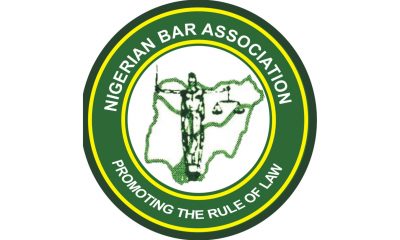
 News4 days ago
News4 days agoNBA President Sues For Workers’ Protection, Better Wage
-
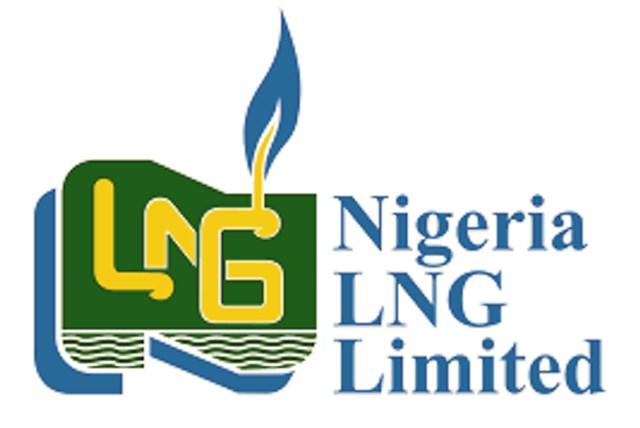
 Rivers4 days ago
Rivers4 days agoNLNG Initiates New Empowerment Scheme For Host Communities
-

 Editorial4 days ago
Editorial4 days agoMay Day: Let Nigerian Workers Breathe
-
City Crime4 days ago
Europa League Will Not Save Our Season – Man Utd
-
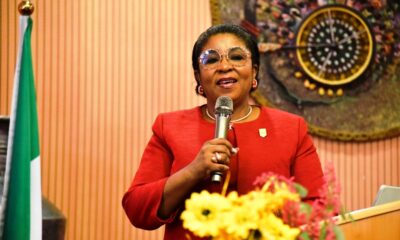
 News4 days ago
News4 days agoWalson-Jack Salutes Civil Servants’ Dedication On Workers’ Day
-
Business4 days ago
TTP Trains Customs Agents, Freight Forwarders On Eto App
-
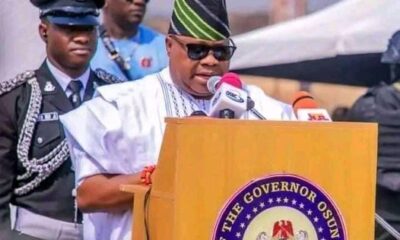
 News4 days ago
News4 days agoAdeleke Approves N4bn Bond To Clear Pension Arrears


